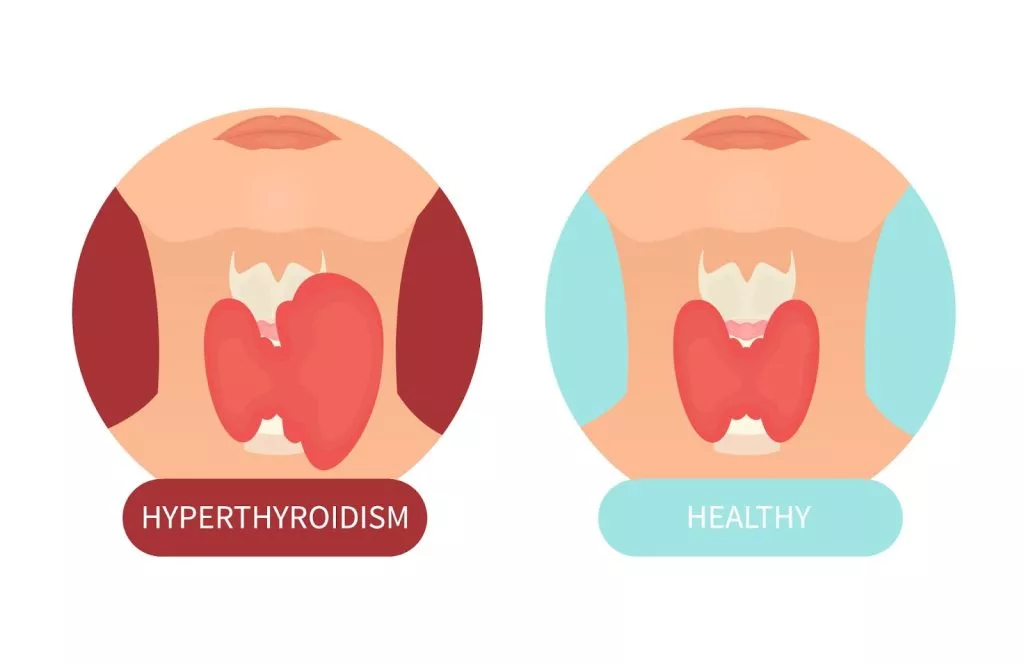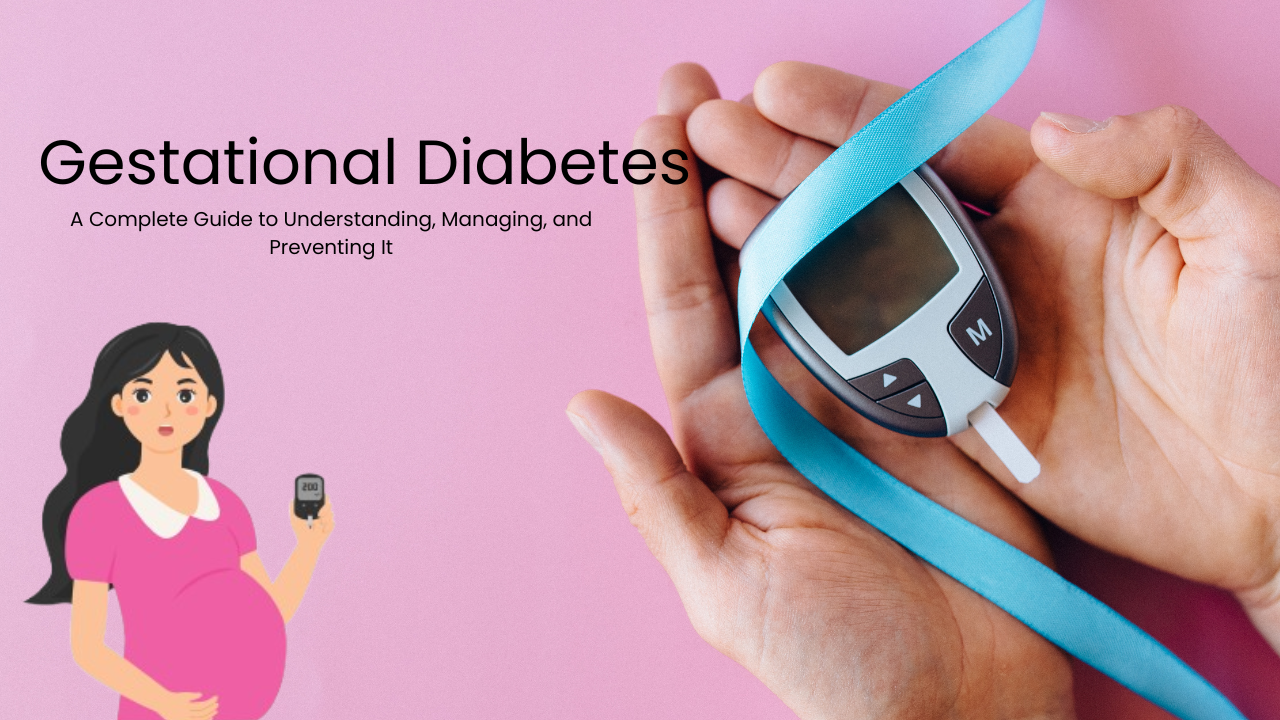Hyperthyroidism is a disease of the thyroid gland characterized by the overproduction of thyroid hormones. When the thyroid gland becomes overactive, it can lead to various physical, emotional, and physiological symptoms seriously affecting the quality of life.
Introduction
The thyroid gland produces two primary hormones: triiodothyronine (T3) and thyroxine (T4). These hormones influence many bodily functions, including heart rate, body temperature, and energy metabolism. Hyperthyroidism occurs when there is excessive production of T3 and T4, leading to overactive metabolism. The condition is more common in women than men and typically presents between the ages of 20 and 40, though it can occur at any age.
Hyperthyroidism can significantly impact quality of life, but with proper diagnosis and treatment, individuals can manage the condition effectively. Early recognition and intervention are critical to prevent complications such as heart problems and bone loss.
Causes of Hyperthyroidism
The most common causes include:
1. Graves’ Disease
Graves’ disease is an autoimmune disorder and the leading cause of hyperthyroidism. It was named after Robert Graves’ who discovered this condition. The immune system produces antibodies (thyroid-stimulating immunoglobulins) that stimulate the thyroid gland to produce excessive hormones. It sometimes runs in families and may be triggered by environmental factors, severe stress, or infections.
2. Toxic Nodular Goiter
Also known as Plummer’s disease, toxic nodular goiter occurs when one or more nodules within the thyroid gland produce excess thyroid hormones independently of the gland’s regulatory mechanisms. This condition is more common in older adults.
3. Thyroiditis
Thyroiditis refers to inflammation of the thyroid gland, which can cause a temporary release of stored thyroid hormones into the bloodstream. Subacute thyroiditis, often triggered by viral infections, is one common form. This is completely reversible in 8-12 weeks with symptomatic and supportive treatment.
4. Excessive Iodine Intake
The thyroid gland requires iodine to produce hormones. However, an excessive intake of iodine, through diet, supplements, or medications like amiodarone, can overstimulate the thyroid and lead to hyperthyroidism.
5. Thyroid Hormone Overdose
Taking too much thyroid hormone medication, either intentionally or accidentally, can result in hyperthyroidism. This is sometimes seen in patients undergoing treatment for hypothyroidism.
Common Clinical Manifestations of Hyperthyroidism
Hyperthyroidism affects multiple organ systems, and its symptoms can vary in severity. Common clinical manifestations include:
1. Metabolic Symptoms
- Unexplained weight loss despite an increased appetite
- Heat intolerance and excessive sweating – red sweaty palms
2. Cardiovascular Symptoms
- Rapid or irregular heartbeat (tachycardia, atrial fibrillation)
- Palpitations
- High blood pressure
3. Neurological and Emotional Symptoms
- Nervousness, anxiety, or irritability
- Tremors in the hands or fingers
- Insomnia or difficulty sleeping
4. Musculoskeletal Symptoms
- Muscle weakness, particularly in the upper arms and thighs
- Increased risk of osteoporosis and fractures
5. Reproductive Symptoms
- Menstrual irregularities in women (lighter or less frequent periods)
- Reduced fertility in both men and women
6. Dermatological Symptoms
- Thinning hair or hair loss
- Warm, moist skin
- Rarely edema of Legs with texture alteration
7. Ocular Symptoms (in Graves’ Disease)
- Bulging eyes (exophthalmos)
- Dry, irritated, or red eyes
- Double vision
8. Goiter
An enlarged thyroid gland, visible as a swelling in the neck, is often present in hyperthyroidism.
Diagnosis of Hyperthyroidism
Diagnosing hyperthyroidism involves a combination of clinical evaluation, blood tests, & imaging studies, Key diagnostic approaches include:
1. Medical History and Physical Examination
- Detailed history of symptoms, including weight loss, palpitations, and heat intolerance
- Physical examination to check for signs like goiter, tremors, and rapid heartbeat
2. Blood Tests
- Thyroid Hormones (T3 and T4): Elevated levels confirm hyperthyroidism.
- Thyroid-Stimulating Hormone (TSH): Suppressed levels indicate primary hyperthyroidism.
- Thyroid Antibodies: Presence of thyroid-stimulating immunoglobulins suggests (TRAB/TSI) Graves’ disease, it has diagnostic and prognostic value.
3. Imaging Studies
- Thyroid Ultrasound: Used to evaluate the size, structure, and presence of nodules in the thyroid gland.
- Radioactive Iodine Uptake (RAIU) Test: Measures how much iodine the thyroid gland absorbs. High uptake suggests Graves’ disease, while low uptake may indicate thyroiditis.
- Technetium (Tc) Scan – as a substitute for RAI Uptake test toconfirm the diagnosis and cause of hyperthyroidism.
4. Biopsy
In cases where cold suspicious nodules are detected, a fine-needle aspiration biopsy may be performed to rule out malignancy.
Management of Hyperthyroidism
The management of hyperthyroidism aims to reduce thyroid hormone production and alleviate symptoms. Treatment options include:
1. Medications
- Antithyroid Drugs: Medications such as methimazole, carbimazole, and propylthiouracil inhibit thyroid hormone synthesis. These are often the first line of treatment for mild to moderate hyperthyroidism. All these medications have potential side effects and must be taken under supervision with periodic monitoring with necessary lab tests. Propylthiouracil is reserved for people allergic or intolerant to carbimazole/methimazole or the first 12 weeks of pregnancy with hyperthyroidism. The usual duration of treatment is 1-2 yrs, but some may need for longer even up to 5 years.
- Beta-Blockers: Used to manage symptoms like rapid heartbeat, tremors, and anxiety. These do not affect hormone levels but provide symptomatic relief. Usually, they are required for the first 2-4 months and are stopped once FT3, FT4 become normal.
2. Radioactive Iodine Therapy
This treatment involves the oral administration of radioactive iodine, which is absorbed by the thyroid gland and destroys overactive thyroid cells. It is a common and effective long-term solution but may lead to permanent hypothyroidism, requiring lifelong thyroid hormone replacement with Levothyroxine.
3. Surgery
Thyroidectomy, or surgical removal of part or whole thyroid gland, is an option for patients who cannot tolerate or respond to medications or radioactive iodine or have large goiter. Surgery may also be preferred in cases of large goiters or suspected malignancy.
4. Lifestyle and Dietary Adjustments
- Avoiding iodine-rich foods and supplements if recommended by a healthcare provider
- Managing stress and incorporating relaxation techniques
- Maintaining a balanced diet to support overall health
5. Treatment for Underlying Causes
Addressing the root cause, such as treating Graves’ disease or reducing excessive iodine intake, is critical for effective management.
Hyperthyroidism & Pregnancy: The pregnancy must be avoided while being under treatment for hyperthyroidism as there is very high risk of miscarriage and medications related side effects to fetus. Always discuss with your treating doctor about pregnancy and plan accordingly.
Thyrotoxic Storm or Crisis: Itis a rare but life-threatening condition resulting from an acute exacerbation of hyperthyroidism. It occurs when there is a sudden and severe increase in thyroid hormone levels, due to infection, surgery, trauma, or discontinuation of antithyroid medications in individuals with underlying hyperthyroidism or Graves’ disease. It is characterized by a hypermetabolic state presenting with high fever, tachycardia, atrial fibrillation, hypertension, profuse sweating, tremors, and agitation. Neurological manifestations like delirium, seizures, or coma may occur in severe cases. If left untreated, a thyroid storm can progress to cardiovascular collapse, liver failure, or multi-organ dysfunction & death. Prompt recognition and aggressive management are essential to reduce mortality.
Conclusion
Hyperthyroidism is a complex condition that can significantly impact physical and emotional well-being. Understanding its causes, recognizing symptoms, and seeking prompt medical attention are crucial for effective management.
If you suspect you may have symptoms of hyperthyroidism, consult an expert endocrinologist for a thorough evaluation and personalized treatment plan. Early intervention can prevent complications and ensure optimal outcomes.





